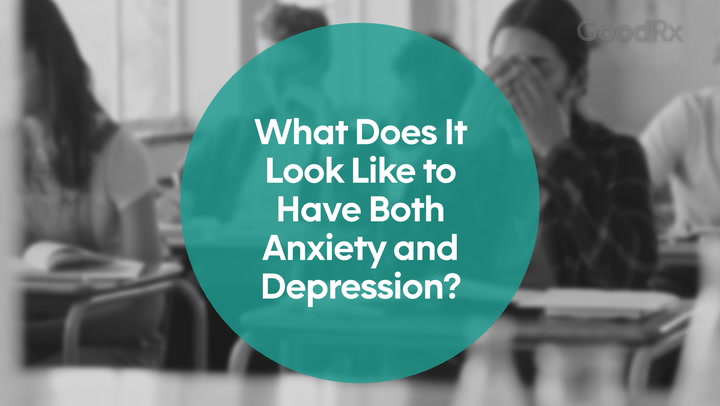
5 Ways to Help Someone Who Is Grieving
Key takeaways:
Grief can occur after losing a loved one, pet, or even an opportunity. It is an ongoing process that looks different for everyone.
You cannot take away a grieving person’s pain. But you can offer comforting words and actions to show your support.
Listening, empathizing with their pain, offering to help with day-to-day tasks, and checking in are some ways that you can help a person who is grieving.

Grief is an emotional reaction to loss that includes feelings like sadness, fear, and anger. Grief often follows the death of a loved one. But other forms of loss can also trigger grief such as:
A breakup
Divorce
Loss of a job
Trauma
Natural disasters
A pandemic
People may cope with grief in different ways. There is no “right” or “wrong” way to grieve. And when someone you care about is grieving a loss, there are ways that you can provide comfort and support.
Search and compare options
Tips on supporting someone who is grieving
You can’t make another person’s pain go away. This can be particularly hard to accept when you see a loved one suffering. But you can comfort a person who is grieving with your words and actions.
As a family member or friend, you can support a loved one in the following ways:
Be a good listener. Allow the person to talk about how they are feeling. You may feel an urge to want to rescue them from their pain. But remember that there is nothing you can do to “solve” their grief. Simply listening is one of the best ways that you can show your support.
Express empathy. Empathy is the ability to acknowledge and feel what another person is feeling. Empathizing with a person’s grief helps them to feel understood and connected. This can be done by reflecting back what they are feeling. Statements like, “That sounds so hard,” and “It makes sense that you really miss them,” conveys understanding of their experience.
Offer to help with practical tasks. Grief can make it difficult to do daily chores and tasks, such as cooking meals, running errands, and doing housework. Offering to help with practical tasks can alleviate some of the burden on the person grieving.
Avoid giving advice or sharing your personal opinions. Even though you may mean well, giving advice or sharing your personal, religious, or spiritual views on loss is not always helpful. The person may not be ready to hear your advice or agree with your views, which could cause them to pull away and isolate. Try to keep these things to yourself, and remember that just listening and empathizing goes a long way.
Stay connected. Grief is a process, and your loved one may need support for a long time. Make an effort to stay connected to them, even if they aren’t always up to responding, and let them know your door is always open.
What do you say to someone who is grieving?
What you choose to say or don’t say to a person who is grieving can have a big impact. It may be hard to find the right words to express your support. Some statements that can be helpful include:
“How are you doing today?” A person who is grieving is likely struggling with a lot of emotions. Asking how they are doing shows that you are concerned and thinking about them during a difficult time.
“That sounds really hard.” A simple statement like this conveys empathy and understanding. Avoid changing the topic when painful emotions come up, even if it feels uncomfortable. Also, statements like, “At least they didn’t suffer too long,” may be well intentioned but can feel dismissive.
“Take as much time as you need.” Let the person know that you understand grieving is a process, and you won’t rush them.
“How can I support you?” Check in to see what you can do to support your loved one. This direct, open-ended question lets them know you’re ready to help.
“What do you need right now?” One of the best ways to assess what your loved one needs is to ask. This gives them an opportunity to honestly request what will be most helpful.
How often should you check in on someone who is grieving?
There is no set amount of time for when you should check in on a person who is grieving. Depending on how close you are, you may choose to check in every day, once a week, or less frequently. It is important that you make an effort, though, even if you feel uncomfortable.
Read more like this
Explore these related articles, suggested for readers like you.
People often check in immediately after a loss and then gradually stop as time goes on. Your loved one may need more support in the weeks or months after a loss as other people stop reaching out as often. Birthdays, anniversaries of the loss, and holidays can also be particularly difficult, so make an effort to check in on these occasions.
Many people worry that asking a person how they are doing after a loss will cause them pain. But ignoring a person’s loss can cause them to feel more alone.
How do you comfort a child who is grieving?
Children can also experience grief after a loss. But children may have different reactions to grief than adults. For example, children may return to an earlier developmental stage in response to their pain.
As a parent or other close adult in a child’s life, you can help comfort a grieving child in the following ways:
Be direct and use age-appropriate language. Explain that their loved one died and is not coming back. Avoid statements like “they fell asleep,” which could be confusing for the child and interfere with their ability to grieve in a healthy way.
Encourage children to share their feelings about the loss. Spend time with them, and allow them to share how they are feeling. But don’t push them if they are not ready to talk.
Allow them to choose if they would like to attend the funeral. If a child does not want to go, respect their wishes. Encourage them to honor the deceased person in another way that they feel comfortable with, such as making a scrapbook or planting a tree. If they do choose to go, explain to them what it will be like in advance so they have an idea of what to expect.
Stick to the same structure and routine. Keeping the child’s environment the same can help them feel stable during a difficult time. Try to keep things as normal as possible.
Consider books on grief and loss. There are many age-appropriate books on death that can help children understand their feelings. You may consider finding one in your local library or bookstore and reading it together.
Like adults, children can also develop complicated grief or prolonged grief disorder. If you notice a child showing signs of complicated grief, reach out to a mental health professional for help.
Mental health resources and support for people in grief
People who experience grief may benefit from mental health treatment or crisis intervention. This is especially true for anyone dealing with prolonged or complicated grief or those who need extra support.
For help finding treatment for grief or other mental health concerns, you can search SAMSHA’s Behavioral Health Treatment Services Locator or call SAMHA’s National Helpline at 1-800-662-4357.
Resources and support groups are also available for people dealing with specific types of grief:
Loss of a child, and support for teens and siblings: The Compassionate Friends
Miscarriage, stillbirth, or infant loss: Postpartum Support International
Loss of a military service member: Tragedy Assistance Program for Survivors
Suicide loss: Alliance of Hope
If you or someone you know is experiencing a crisis or has suicidal thoughts, contact the Suicide & Crisis Lifeline at 988.
The bottom line
Grief is an emotional reaction that happens after a loss. Grief never fully goes away, but over time a person can heal from their pain and accept the loss.
Support from family and friends is an important part of coping with grief. If someone you know has experienced a loss, you can help them by checking in, listening, expressing empathy, and offering to help. If you think your loved one is experiencing complicated grief or needs additional support, you may suggest that they contact a therapist or attend a support group.
Why trust our experts?



References
Alliance of Hope. (n.d.). Alliance of Hope.
American Academy of Child and Adolescent Psychiatry. (2018). Grief and children.
Centers for Disease Control and Prevention. (2022). Grief and loss.
Ehmke, R. (2021). Helping children deal with grief. Child Mind Institute.
Postpartum Support International. (n.d.). Postpartum Support International.
Sinclair, S., et al. (2017). Sympathy, empathy, and compassion: A grounded theory study of palliative care patients’ understandings, experiences, and preferences. Palliative Medicine.
Substance Abuse and Mental Health Services Administration. (n.d.). Behavioral Health Treatment Services Locator.
Substance Abuse and Mental Health Services Administration. (2022). 988 Suicide and Crisis Lifeline.
Substance Abuse and Mental Health Services Administration. (2022). SAMHSA’s National Helpline.
The Compassionate Friends. (n.d.). The Compassionate Friends.
Tragedy Assistance Program for Survivors. (n.d.). Tragedy Assistance Program for Survivors.
For additional resources or to connect with mental health services in your area, call SAMHSA’s National Helpline at 1-800-662-4357. For immediate assistance, call the National Suicide Prevention Lifeline at 988, or text HOME to 741-741 to reach the Crisis Text Line.




























